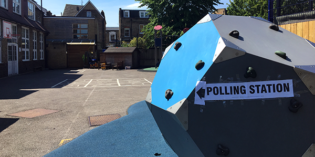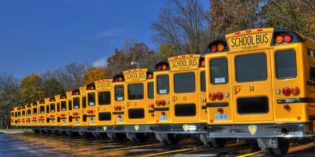Tag: schools

General election 2019: why school buildings need to be used as polling stations
The last time the UK held an election in December was 1923. As preparations are made for a snap election, and despite the logistical problems this might cause, Toby James explains why schools should, as usual, be used at election time, as a government minister and electoral officials clash.

The Prevent duty is two years old. What’s really going on in schools and colleges?
The Prevent duty came into force two years ago. Schools and colleges now have to identify students they consider vulnerable to radicalisation and to promote ‘fundamental British values’ in the curriculum. Has this had – as some fear – a chilling effect on free speech? Joel Busher, Tufyal Choudhury and Paul Thomas found staff have tried to […]

The ‘academy revolution’ is ousting governors. We need to hold these schools accountable
As more and more schools are removed from local authority control and become academies, the role of governors has diminished – and with it a school’s accountability to local people, argues Andy Allen. Contrary to the aim of the ‘school revolution’, multi-academy trusts are not autonomous at all, but answerable to a few unelected trustees. He […]

Faith schools do better chiefly because of their pupils’ backgrounds
Faith schools generally achieve better exam results than their counterparts, with Roman Catholic schools doing particularly well. If government proposals go ahead, oversubscribed new faith schools will soon be allowed to select all their pupils according to religion, rather than only half of them. But how much of their success is down to their intake? Rebecca Johnes […]

How No Child Left Behind encourages better-off parents to flee poorly-performing schools
For a democracy to function properly, its citizens need to be informed. In order to encourage this and make providers more accountable, the US has implemented performance accountability measures for public and private goods and services. In new research, John B. Holbein examines the effects of the No Child Left Behind policy, which gives citizens information […]

Should we be worried about controversial government plans to do away with parent governors in schools?
The government recently announced a series of changes to the oversight and governance of schools, with the most controversial concerning the ‘academisation’ of all English secondary schools, and what may amount to the abolition of the role of the parent governor. Here, Andrew Wilkins casts his eye over the changes – and in particular the […]

Improving verbal learning in schools can increase political engagement and encourage voting later in life
Can education policymakers close achievements gaps in core subjects, and at the same time improve civic education and participation? In new research, Meghan Condon argues that they can; students who gain greater verbal skills in school, and who then do better academically, are also more likely to vote and volunteer as adults. She argues that […]

David Blunkett: Introducing Citizenship education was the easy bit. We need to do more to encourage schools to support youth participation
The previous Labour government added Citizenship to the National Curriculum in England in 2002. Last week on Democrat Audit David Kerr discussed how its prominence has fallen in more recent and called for more robust monitoring of provision. In this post David Blunkett MP, Education Secretary under Labour, discusses the importance of Citizenship and how its […]

Surveillance is reconfiguring the way that we live our lives
Emmeline Taylor has been documenting the steadily rising use of new technologies with surveillance capabilities in UK schools and schools around the world. In this extract from her recent interview with Sonali Campion, she describes the way in which these technologies are reshaping young people’s expectations of privacy, trust in others and social interactions. Similar PostsInformational privacy: a precondition […]

We need renewed political commitment to citizenship education and ongoing monitoring of its provision in schools
Citizenship was added to the National Curriculum in England twelve years ago. As part of our series on youth participation in politics, David Kerr discusses how citizenship has fallen in prominence in recent years as schools have faced other pressures and teaching requirements have been relaxed. He argues for ongoing monitoring of the provision of citizenship education. Similar […]


 Democratic Audit's core funding is provided by the Joseph Rowntree Charitable Trust. Additional funding is provided by the London School of Economics.
Democratic Audit's core funding is provided by the Joseph Rowntree Charitable Trust. Additional funding is provided by the London School of Economics.